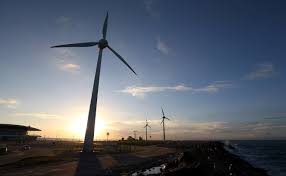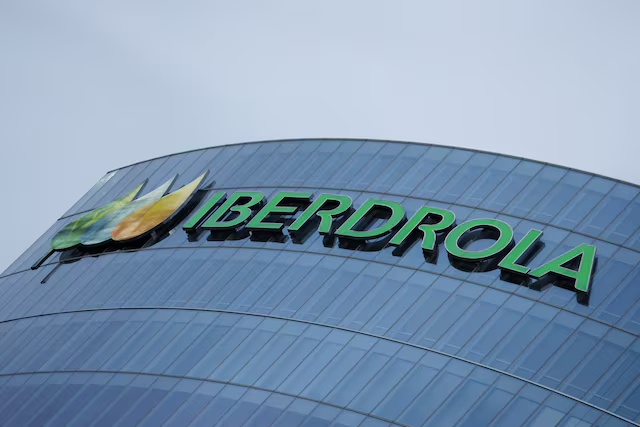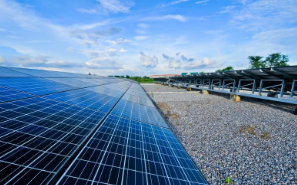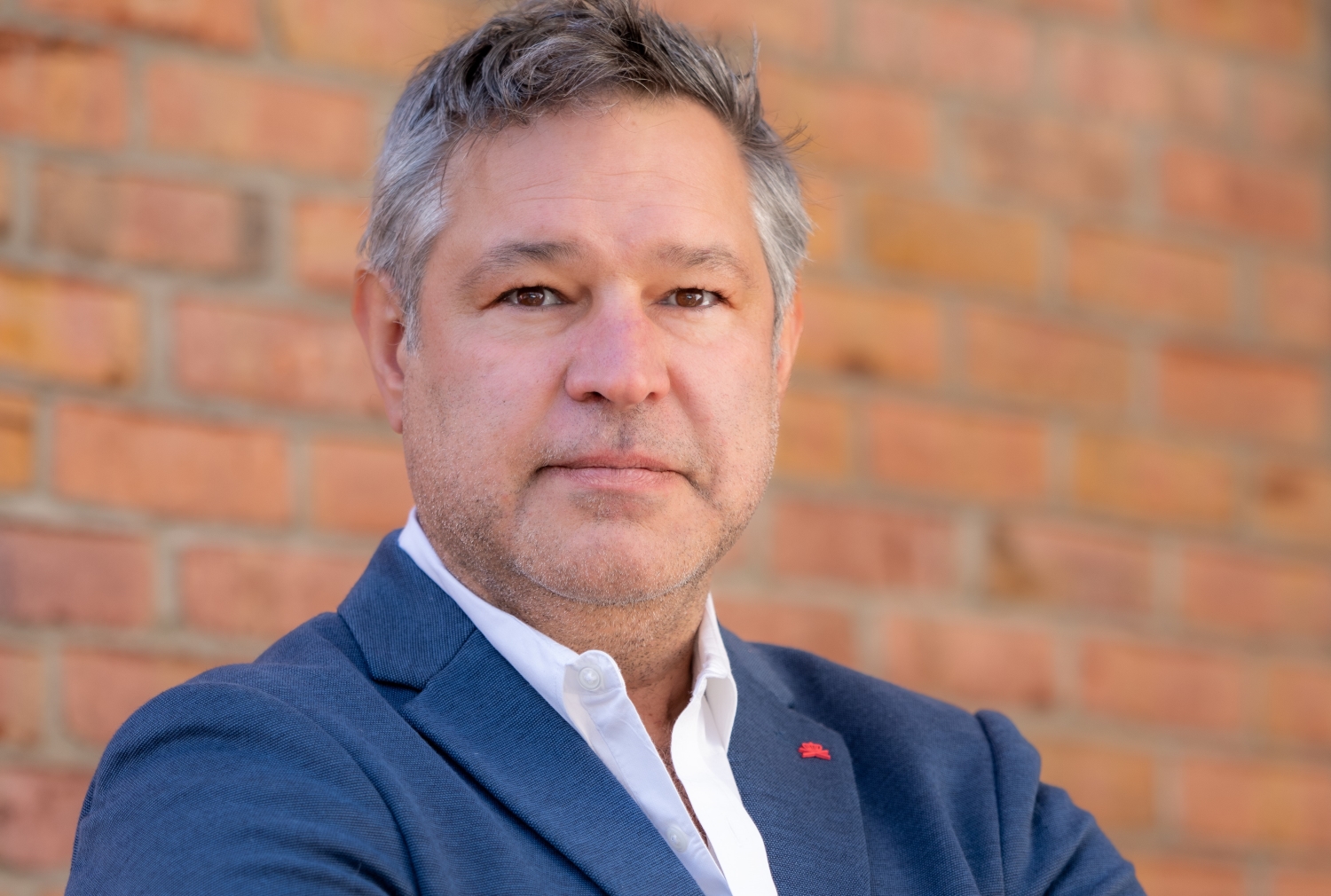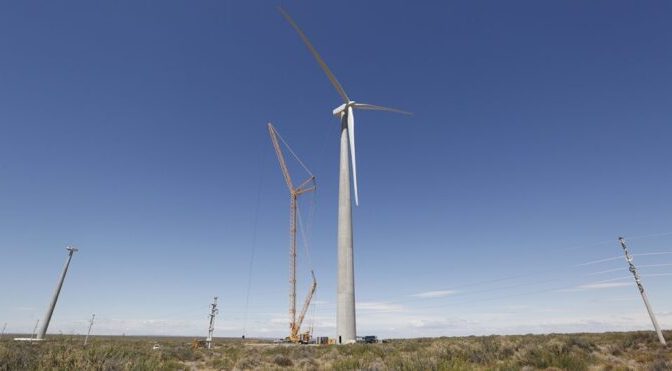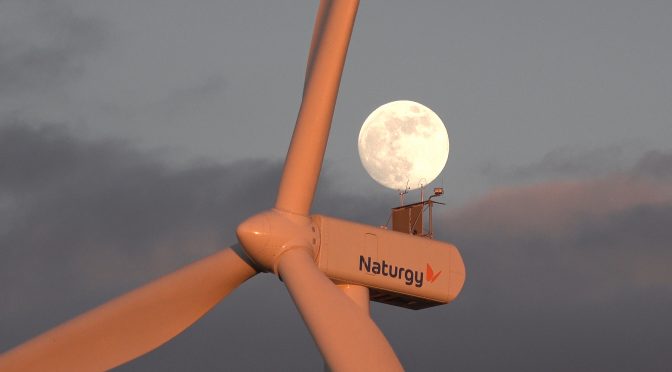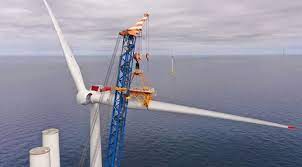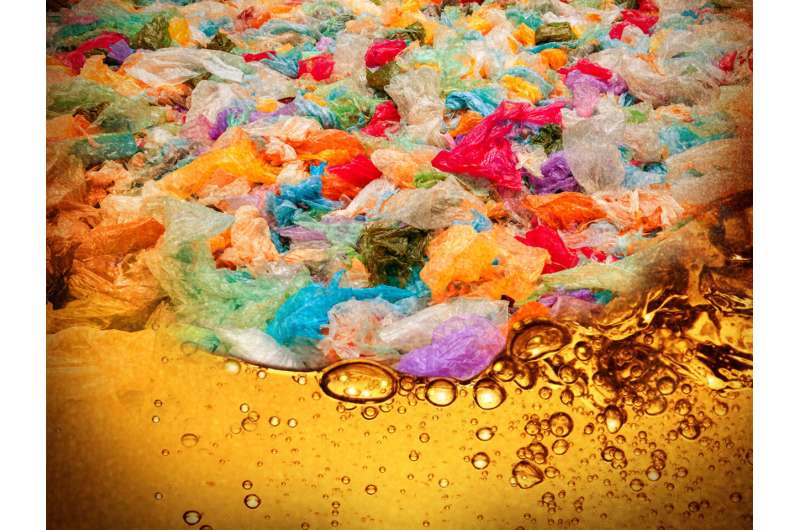
A new method to convert low-density plastic waste to fuel and raw materials promises to help close the carbon cycle. Credit: Art by Melanie Hess-Robinson | Pacific Northwest National Laboratory
There's a lot of potentially useful raw materials bound up in used face masks, grocery bags and food wrap. But it has been much cheaper to keep making more of these single-use plastics than to recover and recycle them.
Now, an international research team led by the Department of Energy's Pacific Northwest National Laboratory has cracked the code that stymied previous attempts to break down these persistent plastics. They reported their discovery in today's issue of Science (Feb. 23).
Low temperature and reaction control
Typically, recycling plastics requires "cracking" or splitting apart the tough and stable bonds that also make them so persistent in the environment. This cracking step requires high temperatures, making it expensive and energy intensive.
The novelty here is combining the cracking step with a second reaction step that immediately completes the conversion to a liquid gasoline-like fuel without unwanted byproducts. The second reaction step involves what are known as alkylation catalysts. These catalysts provide a chemical reaction currently deployed by the petroleum industry to improve the octane rating of gasoline.
Crucially, in the current study, the alkylation reaction immediately follows the cracking step in a single reaction vessel, at near room temperature (70 degrees C/158 degrees F).
A newly developed plastic upcycling process works for low-density polyethylene products (LDPE, plastic resin code #4), such as plastic films and squeezable bottles, and polypropylene products (PP, plastic resin code #5) that are not typically collected in curb-side recycling programs in the United States. Credit: Animation by Sara Levine | Pacific Northwest National Laboratory
"Cracking just to break the bonds results in them forming another one in an uncontrolled way, and that's a problem in other approaches," said Oliver Y. Gutiérrez, a study author and chemist at PNNL. "The secret formula here is that when you break a bond in our system, you immediately make another one in a targeted way that gives you the end product you want. That is also the secret that enables this conversion at low temperature."
In their study, the research team, co-led by scientists from the Technical University of Munich, Germany, pointed to separate, recent developments by the petroleum industry to commercialize the second part of the process reported here for crude oil processing.
"The fact that industry has successfully deployed these emerging alkylation catalysts demonstrates their stable, robust nature," said Johannes Lercher, a senior author of the study, director of PNNL's Institute for Integrated Catalysis, and professor of chemistry at TUM. "This study points to a practical new solution to close the carbon cycle for waste plastic that is closer to implementation than many others being proposed."
In their study, the researchers note a limitation on their findings. The process works for low-density polyethylene products (LDPE, plastic resin code #4), such as plastic films and squeezable bottles, and polypropylene products (PP, plastic resin code #5) that are not typically collected in curb-side recycling programs in the United States. High-density polyethylene (HPDE, plastic resin code #2) would require a pretreatment to allow the catalyst access to the bonds it needs to break.
Seeing waste plastic as future fuel and new products
Petroleum-based plastic waste is an untapped resource that can serve as the starting material for useful durable materials and for fuels. More than half of the 360 million tons of plastics produced globally each year are the plastics targeted in this study. But looking at a mountain of plastic and seeing its value requires an innovator's mindset, a chemist's ingenuity, and a realist's understanding of the economics involved. These scientists are trying to change the dynamic by applying their expertise in efficiently breaking chemical bonds.
"To solve the problem of persistent waste plastic, we need to reach a critical point where it makes more sense to collect it and return it to use than to treat it as disposable," said Lercher. "We've shown here that we can make that conversion quickly, at mild conditions, which provides one of the incentives to move forward to that tipping point."

